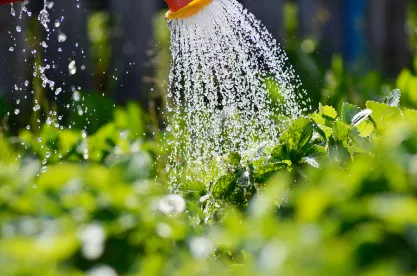In a surprising twist in the permitting relationship between the federal and state governments, U.S. EPA has unilaterally stopped jointly issuing surface water discharge permits with the Commonwealth of Massachusetts, potentially causing confusion and headaches for permittees going forward. EPA’s action was effective June 20, 2020, and EPA provided no public explanation of its decision. Whether this change reflects a larger schism of policy or procedure remains unclear, but it complicates a permitting process that appeared to be working for the regulated community.
Under the former joint permitting arrangement, surface water discharge permits were issued jointly by EPA under the National Pollutant Discharge Elimination System (NPDES) program, which is part of the federal Clean Water Act, and by MassDEP under its independent authority under the state Clean Waters Act. As a result of this collaboration, individual permits and many general permits have been issued jointly, avoiding duplicative effort and potentially inconsistent permit requirements.
There are several important general permits currently in draft form that were proposed to be issued jointly by EPA and MassDEP. These are listed below. It is not clear whether EPA will move forward with these unilaterally.
-
Proposed modification of the Massachusetts Small MS4 General Permit (available here). These changes were proposed on April 23, 2020, and the comment period ended June 8, 2020.
-
Draft Aquaculture General Permit for Concentrated Aquatic Animal Production Facilities and Other Related Facilities in Massachusetts, New Hampshire, and Vermont (available here). This permit was proposed on May 11, 2020 and the public comment period closed July 10, 2020.
We note that the Multi-Sector General Permit for Stormwater Discharges Associated with Industrial Activity is only issued by EPA because a Massachusetts permit is typically not required for stormwater associated with these facilities. On March 2, 2020, EPA proposed to renew this permit (available here), and the comment period ended on May 31, 2020. Please see our prior alert on MassDEP’s comments on this draft permit, available here.
No change has been made, so far, as to how an entity in Massachusetts obtains coverage under existing general permits issued jointly by Massachusetts and EPA. The general rule continues to be that, in most cases, the Notice of Intent is submitted solely to EPA. However, in some cases, as described here, MassDEP requires that the Notice of Intent also be submitted to MassDEP, now through its e-permitting portal.
In relation to individual surface water discharge permits, MassDEP has issued guidance, available here, that sets forth the process for obtaining a permit from both EPA and MassDEP. Notably, this will require that EPA request and receive a Section 401 Water Quality Certificate from MassDEP each time it issues an individual NPDES permit or a general permit.
To better understand how the process will work after the split, B&D reviewed several recently-issued draft permits. For each of these, MassDEP’s draft permit incorporated the proposed federal permit by reference and added some additional requirements. These requirements contained some important boilerplate language and added two substantive requirements:
-
Submittal within six months of the effective date of the federal permit and evaluation by the permittee of whether the facility uses any products containing any per- and polyfluoroalkyl substances (PFAS) and whether use of those products can be reduced or eliminated. In doing so, MassDEP cites its authority under 314 CMR 3.11(2)(a)6, and 314 CMR 4.05(5)(e).
-
Testing within two years of the effective date of the permit for six PFAS using a method specified by MassDEP. The draft federal permit requires testing for the same six PFAS within six months after EPA’s multi-lab validated method for wastewater is made available to the public. As such, it appears that MassDEP is trying to ensure that even if that method does not become available within two years, testing will occur under the permit. Note, the six PFAS are the ones that MassDEP has proposed to regulate under the Safe Drinking Water Act, PFOA, PFOS, PFHxS, PFHpA, PFNA, and PFDA.
Current and future NPDES permittees should continue to monitor this shift in Massachusetts permitting procedure.





 />i
/>i

